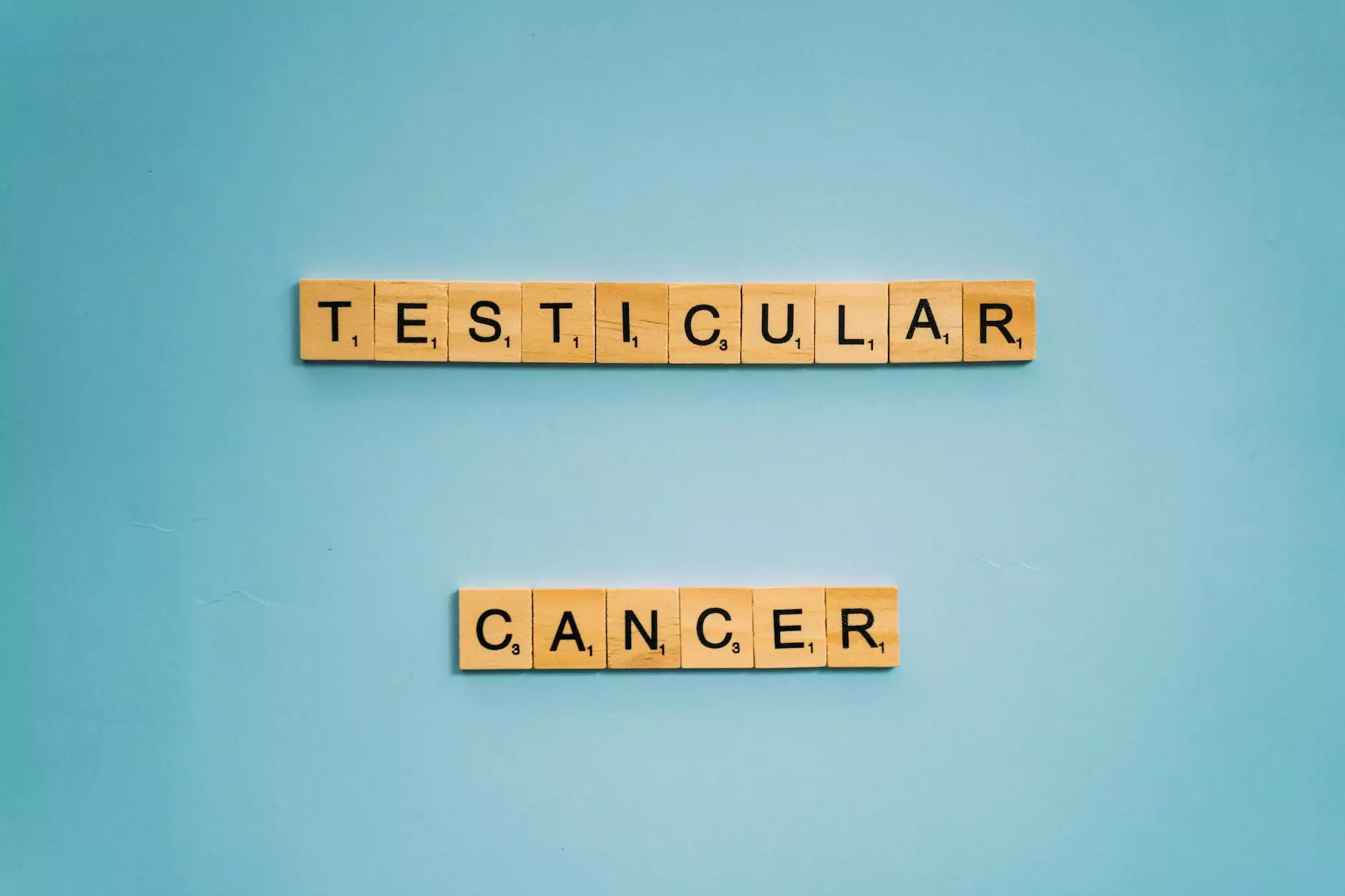Thyroid Cancer - Brandt Debra S MD

Introduction
Welcome to the comprehensive guide on thyroid cancer, brought to you by Brandt Debra S MD. As a leading expert in thyroid cancer treatment within the Health - Medicine category, we aim to provide you with detailed information about this condition, including its types, symptoms, diagnosis, and treatment options. Thyroid cancer occurs when abnormal cells in the thyroid gland begin to grow and divide uncontrollably. Let's dive deeper into the different aspects of thyroid cancer.
Types of Thyroid Cancer
Thyroid cancer can be classified into several types, each with its own characteristics and prognoses. The main types of thyroid cancer include:
Papillary Thyroid Cancer
Papillary thyroid cancer is the most common type, comprising approximately 80% of all thyroid cancer cases. It usually develops slowly and can often be successfully treated, especially when detected early. This type of cancer primarily affects women in their 30s or 40s.
Follicular Thyroid Cancer
Follicular thyroid cancer accounts for about 10-15% of all thyroid cancer cases. It is more common in areas with iodine deficiency. This type of cancer generally affects people in their 40s or 50s and has a slightly higher risk of spreading to other organs compared to papillary thyroid cancer.
Medullary Thyroid Cancer
Medullary thyroid cancer, although rare, can occur spontaneously or as part of a genetic syndrome. It arises from C cells, which produce calcitonin. This type of cancer does not originate from the follicular cells that produce thyroid hormone. It requires a specific treatment approach and genetic testing to determine familial or sporadic variations of the disease.
Anaplastic Thyroid Cancer
Anaplastic thyroid cancer is the rarest and most aggressive form of thyroid cancer. It accounts for approximately 2-5% of all thyroid cancer cases. It usually occurs in older individuals and can be challenging to treat due to its aggressive nature. Prompt medical attention is essential.
Symptoms and Diagnosis
The initial signs and symptoms of thyroid cancer may vary depending on the type and stage of the disease. However, some common symptoms to be aware of include:
- Development of a lump or nodule in the neck
- Swollen lymph nodes
- Hoarseness or voice changes
- Pain or difficulty swallowing
- Throat or neck pain
- Chronic cough
- Changes in appetite or weight
If you experience any of these symptoms, it's crucial to seek medical attention promptly. A thorough diagnosis is essential in determining the presence and extent of thyroid cancer. Diagnostic methods commonly used include:
- Physical examination and medical history assessment
- Ultrasound imaging to evaluate the thyroid and any nodules
- Biopsy to examine the cells for cancerous characteristics
- Blood tests to assess thyroid hormone levels
- Radiological scans such as CT, MRI, or PET scans to identify any metastasis
Treatment Options
Once a diagnosis of thyroid cancer is confirmed, various treatment options are available, depending on the type, stage, and individual factors. Some treatment modalities include:
Surgery
Surgical removal is a common treatment approach for thyroid cancer. It aims to remove the cancerous tissue and, if necessary, nearby lymph nodes. The extent of surgery may vary, ranging from lobectomy (partial thyroid removal) to total thyroidectomy.
Radioactive Iodine Therapy
Radioactive iodine therapy is often used after surgery to destroy any remaining thyroid tissue or cancer cells. It involves taking a radioactive iodine pill, which selectively targets and eliminates cancer cells in the thyroid.
External Beam Radiation Therapy
External beam radiation therapy utilizes high-energy X-rays to kill cancer cells or prevent their growth. It is typically employed in advanced cases or when surgery is not a viable option.
Targeted Drug Therapy
Targeted drug therapy involves medications designed to specifically target cancer cells and inhibit their growth. These medications are often used in cases of advanced or metastatic thyroid cancer.
Hormone Replacement Therapy
Following thyroid surgery, hormone replacement therapy is necessary to provide the body with the required thyroid hormones. This ensures the body functions properly without a functioning thyroid gland.
Conclusion
Thyroid cancer is a complex and potentially life-altering condition. However, with the help of experts like Brandt Debra S MD in the Health - Medicine category, effective treatments and management strategies are available. If you suspect any symptoms or have concerns regarding thyroid health, do not hesitate to seek appropriate medical attention. Remember, early detection and intervention significantly improve outcomes. Stay informed, take action, and prioritize your health.




